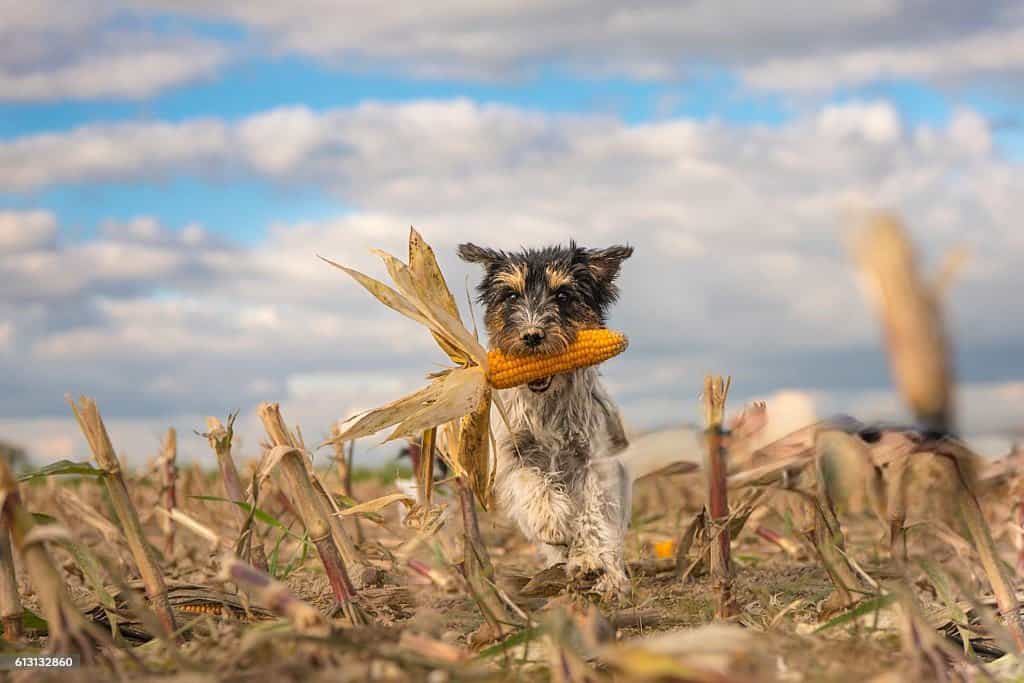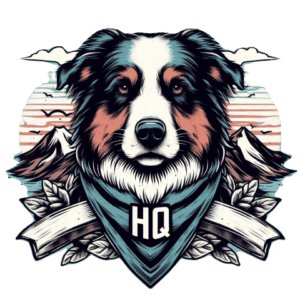
Can dogs eat corn? Learn the benefits of corn for dogs, risks of feeding corn cobs and kernels, plus expert tips for preparing corn to avoid digestive issues or allergies. Get veterinarian guidance on signs of corn allergies, feeding corn safely, and whether dogs can eat corn bread. This is a common question for pet owners when looking for healthy treats for their furry friends. Corn can provide some benefits for dogs like fiber, vitamins, and antioxidants. However, there are also risks to consider before freely feeding your pup corn on the cob or kernels straight from the bag.
When fed properly and in moderation, corn can be a safe part of a dog’s diet. The key is ensuring proper preparation by removing it from the cob, introducing it slowly, and monitoring your dog’s reaction. However, pet owners also need to be aware of potential choking hazards or digestive issues. By understanding the nutritional value along with the appropriate ways to incorporate corn into a dog’s meals, you can make an informed decision about including corn as an occasional snack.
The first thing to evaluate when asking “can dogs eat corn” is the nutritional makeup. Corn contains fiber, vitamin A, antioxidants, and linoleic acid. So, unlike treats full of empty calories or artificial ingredients, corn can provide valuable nutrients. The fiber can also help with digestive health and even help satisfy an anxious dog who eats too fast. However, even with these benefits, dogs may not be well equipped to properly digest significant amounts of corn. So pet owners should exercise caution when introducing corn to avoid potential stomach issues.
Can Dogs Eat Corn Safely? Tips for Serving Corn to Your Dog
Now that we have covered some of the potential benefits and risks of feeding corn to dogs when they ask “can dogs eat corn”, what are some best practices for serving it safely? There are several steps pet owners should take if they wish to share a few corn kernels with their canine companions as a treat.
Can Dogs Eat Corn Off the Cob?
It’s best to avoid giving your dog corn directly off the cob. Corn cobs can present a choking hazard or even puncture your dog’s intestines if swallowed. To feed corn safely, first remove the individual kernels from the cob either using a knife or grater. Discard the bare cob, which could splinter and pose problems internally for a curious pup.
Should You Feed Your Dog Corn Raw or Cooked?
It’s recommended to feed corn to your dog cooked instead of raw. Raw corn may be tougher for some dogs to properly digest. Lightly cooked or warmed corn has a softer texture and natural starches that make it easier on your dog’s stomach.
Can Dogs Have Corn in Limited Amounts?
When first introducing corn to your dog’s diet, only provide a few kernels at a time. Carefully observe your dog’s reaction for signs of digestive issues or allergies. If your dog has no negative reaction initially, gradually increase portions while continuing to monitor. Limit corn to occasional small treat rather than a daily part of your dog’s main meals.
What Kind of Corn Should Dogs Not Eat? Risky Corn-Based Foods
We’ve covered proper preparation of fresh corn kernels as an occasional snack. But there are some corn-based foods that pose additional risks and should be avoided when wondering “can dogs eat corn” products.
Do Not Feed Dogs Corn Cobs
While the choking hazards of cobs deserve reiterating, pet owners should also avoid allowing dogs to eat bare corn cobs that have had the kernels removed. These bare cobs can still splinter and cause internal punctures or blockages requiring emergency surgery. It’s simply best to keep corn cobs away from your dog altogether after removing the kernels.
Avoid Corn Kernels with Seasonings and Salt
When enjoying corn on the cob, many people slather on butter, salt, spices or other flavorful toppings. These seasonings can create gastrointestinal issues for dogs or even be toxic. Keep any corn kernels fed to dogs completely clean and free of any additional ingredients or salts.
Do Not Feed Dogs Corn Bread or Corn-Based Human Foods
While plain corn may be okay for dogs, do not assume food with corn ingredients like corn bread, corn chips, or corn muffins are safe. In addition to digestion issues, these foods likely contain unhealthy fats, salts, seasonings and baking ingredients that dogs should avoid. Stick to a few bites of plain corn at most when answering “can dogs eat corn”.
Monitoring your dog’s reaction remains important, but avoiding these corn-based items entirely removes additional risk. As always, check with your veterinarian about introducing new foods like corn to your dog’s diet.
Look Out for These Signs of Corn Allergies or Digestive Upset in Dogs
While corn can be safe for most dogs in moderation, some may develop allergies or experience digestive upset after eating it. As discussed previously under “can dogs eat corn”, pet owners should start with small amounts and discontinue use if any issues emerge. But what symptoms signal it may be time to stop feeding corn?
Allergic Reaction Signs
Some dogs may have corn allergies and exhibit symptoms like:
- Itchy skin, ears, paws, or rear
- Hot spots or increased licking of paws/fur
- Runny eyes or increased ear infections
- Hives, bumps, or skin irritation
If these allergic reaction signs develop shortly after first exposure to corn, cease feeding it and check with your veterinarian.
Digestive Trouble Signs
Dogs unable to properly digest corn may experience:
- Vomiting
- Diarrhea
- Increased gas or belching
- Loss of appetite
- Abdominal pain or bloating
Corn passing through undigested can cause these stomach issues. You may also notice undigested corn kernels in your dog’s stool. If any digestion problems develop after eating corn, stop feeding it. Check with your vet if symptoms persist beyond 24 hours.
Monitoring dogs closely when asking “can dogs eat corn” allows pet owners to catch potential allergic or digestive issues early. Have more questions? Veterinarians can provide tailored advice about corn for pets with conditions like diabetes, kidney disease, or other special needs.
The Verdict: Yes, Dogs Can Eat Corn in Moderation
When asking “can dogs eat corn”, the answer is generally yes—in moderation. Plain corn can offer some nutritional benefits to dogs like antioxidants, fiber, and vitamins. However, pet owners should take care to introduce corn properly by removing it from the cob, cooking thoroughly, and only feeding small portions at first. Monitor your dog closely for any signs of allergic reaction or digestive upset. Avoid any corn cobs or corn dishes with added salt, butter, or seasonings.
While most dogs enjoy nibbling on a few kernels of corn here and there with no issues, be cautious with dogs prone to digestion problems or allergies. Check with your veterinarian before introducing new foods like corn. If your dog experiences vomiting, diarrhea, major gas, or other unpleasant symptoms after eating corn—stop feeding it immediately and let your vet know. With proper precautions, corn can be a safe occasional snack for dogs to enjoy. But as with any people food offered to canines, moderation is key along with awareness of your dog’s individual health needs and possible sensitivities.
If you carefully introduce plain, cooked corn and monitor your dog’s reaction, the verdict is corn can make an acceptable treat in small doses. Just always put your dog’s safety first by avoiding known choking hazards and understanding your pet’s unique dietary requirements. With some common sense corn precautions, both you and your dog can comfortably answer “yes” when asking “can dogs eat corn?”
Recent Posts
White Australian Shepherd Health: Understanding and Managing Genetic Conditions
When it comes to the White Australian Shepherd, their striking appearance often captures the hearts of dog lovers. However, beneath their beautiful white coats lies a critical topic every owner or...
Australian Shepherd Lifespan Australian Shepherd Lifespan is 12-15 years. Learn tips on nutrition, exercise, and health care to maximize your Aussie's longevity. With their signature merle...
